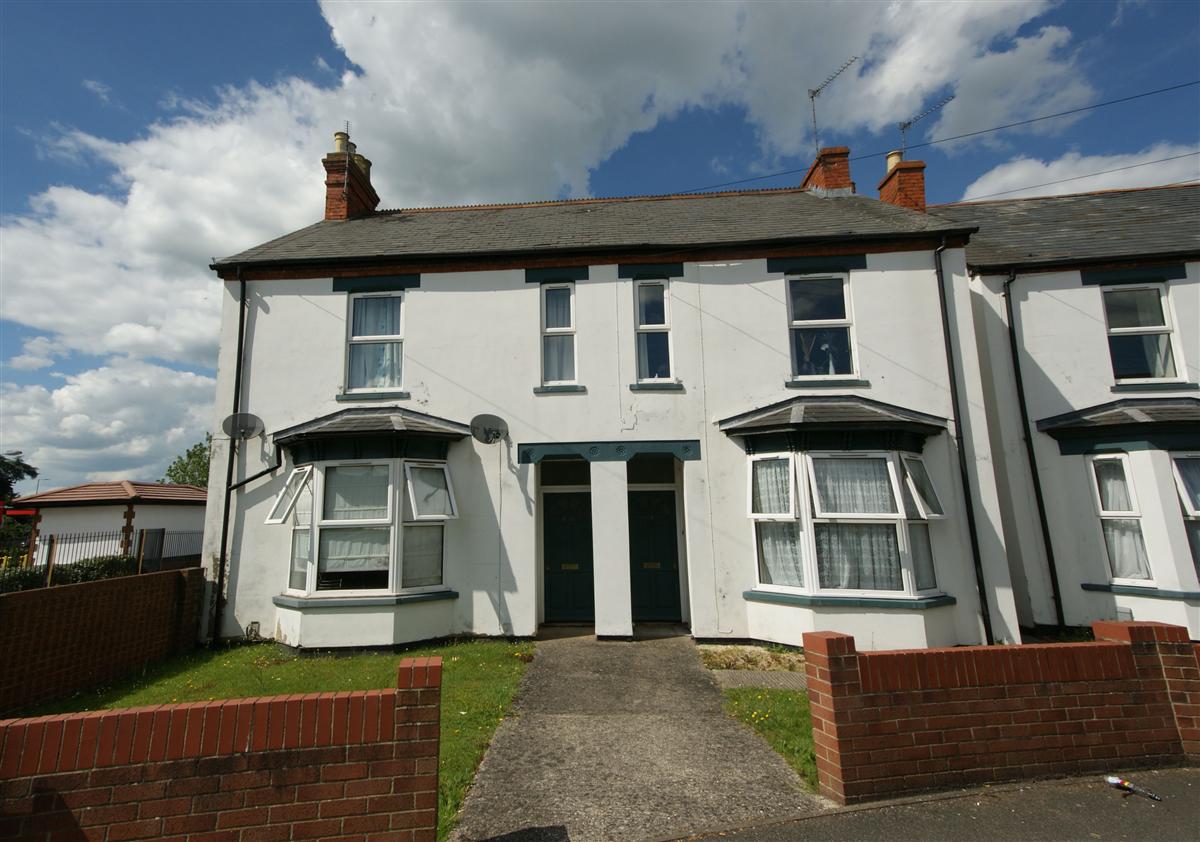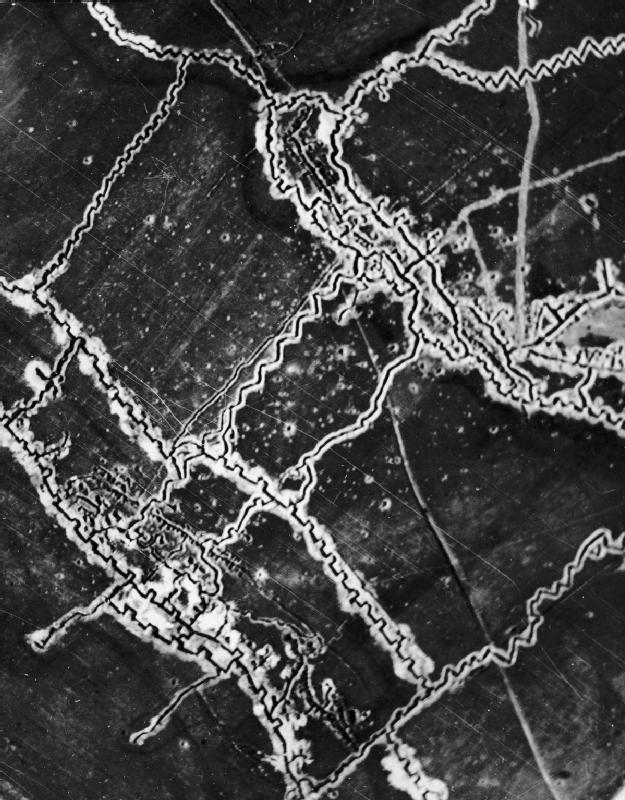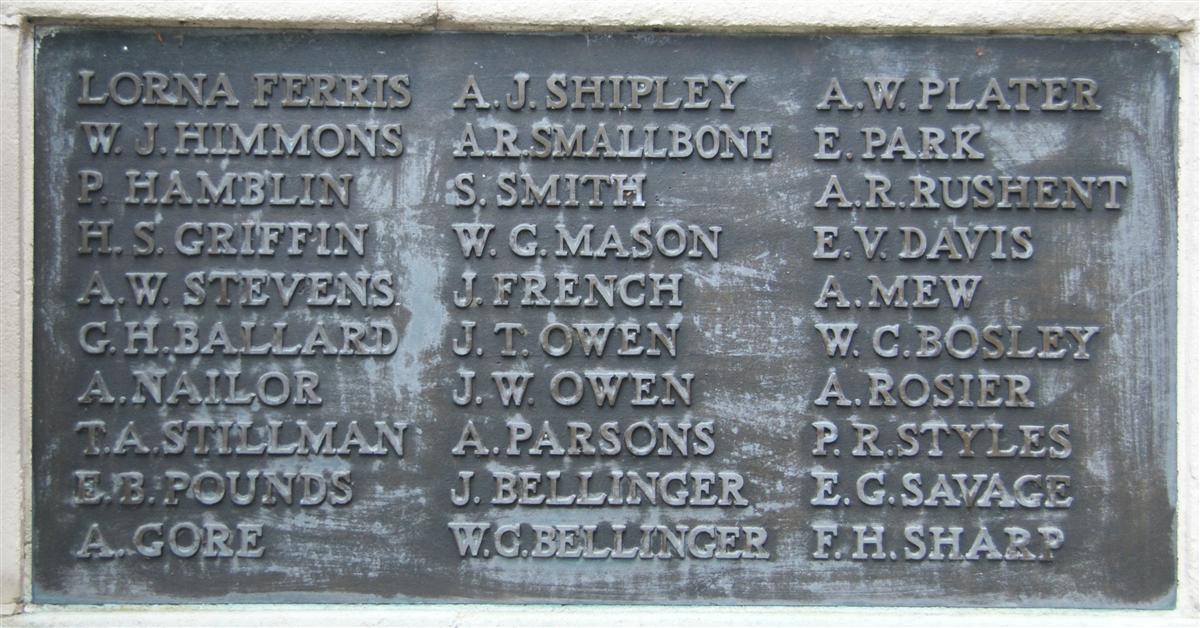Arthur Henry Mew
Lance Corporal 17748 Arthur Henry Mew, 6th (Service) Battalion, Royal Berkshire Regiment
Arthur was born in Nettlebed, Oxfordshire, on 20 February 1898, the son of Alfred Mew and his wife Emily Ann (née Jarvis). He was christened on 16 March 1898 in the neighbouring village of Bix (his mother’s home village and in the same church, St James’ where his parents were married the previous year).
Alfred Mew had the Army in his blood, he served 12 years with the Hampshire Regiment from 1884 to 1896 and volunteered again in 1901 when the call came for troops for the Boer War. In between these two stints with the colours Alfred worked for the Post Office. His involvement in South Africa was as a Colour Sergeant with the Royal Garrison Regiment; freeing younger, fitter troops to fight by providing troops to garrison fixed defences. This was a long term role so Alfred was able to take his wife and young sons (Arthur and William) with him; a third child, Lilian Rose, was born while they were in Bloemfontein.
In 1905 Alfred was discharged from the Royal Garrison Regiment; three months later, in November 1905 he signed up again for the Hampshire Regiment, but this time he did not serve for long. The following February his military career came to an end when he was discharged for the last time – or so he must have thought.

6 Queen's Road (right), formerly Rheola, the Mews' home in 1915-17. |
In 1910 the family moved to 5 Craven Street, Newbury, Alfred was back with the Post Office, working as a postman. By 1912 they had moved on to an unknown destination, presumably in Newbury or nearby as they turn up again in 1915 living in a house with the unusual name of Rheola named after an estate in the Vale of Neath (now 6 Queen’s Road).
Young Arthur was still at school when the census was taken but he would soon have left school to start his working life. He was employed at the Co-operative Stores in Cheap Street. In his spare time he was involved in the choir at his parish church (St John the Evangelist) and the St John’s Scouts.
The outbreak of war meant that there was a call to arms – which old soldier, Alfred Mew soon answered; on 3 September 1914 Colour Sergeant was back in uniform with the 4th (Territorial) Battalion, Royal Berkshire Regiment. By this time Alfred was 48 years old but a man of his experience would have been very useful as a senior NCO for home service duties, which included the manning of prisoner of war camps (one such was established on Newbury Racecourse very early in the war). In 1916 the regimental units doing this work were transferred to a new force, the Royal Defence Corps. Alfred’s wartime service ended on 23 January 1918 when he was discharged as no longer fit for duty.
With an example like his father to follow it is no surprise that Arthur, aged 16 in 1914, volunteered to serve. As he was underage his first service was with the Volunteer Training Corps where he played in the band. However, this was not enough for Arthur, his service number suggests that he enlisted in early 1915 – possibly spurred on by passing his seventeenth birthday. Like his father he enlisted in the Royal Berkshire Regiment, unlike his father he was deemed fit for overseas service and posted to the 6th (Service) Battalion. He must have lied about his age in order to get into a fighting unit long before his eighteenth birthday and to be posted to the front 18 months before he reached 19, the official qualification age for overseas service. The 6th was a new battalion, the second such to be created to cater for the rush of volunteers that followed the outbreak of war. It took time to turn the thousand or so new recruits into a fighting force; most of this training was done in England before the battalion was ready to sail for France. They crossed from Folkestone to Boulogne overnight, arriving in France at 2.30am on 26 July 1915. Arthur appears to have been slightly delayed as his date of entry into the theatre of war is recorded as 3 August, perhaps he had not quite completed his initial training when the bulk of the battalion set off.
The 6th Battalion experienced their first taste of a major battle on the Somme on 1 July 1916, where they had an early success as part of XIII Corps achieving their objectives on a day when most units suffered dreadful casualties in vain attempts to overrun the German lines.
The 6th Battalion’s nemesis was Delville Wood where they were shattered by the loss of most of their number. The battalion was rapidly brought back up to an acceptable fighting strength with the arrival of large numbers of untried men. Perhaps this was when Arthur, as one of the surviving ‘veterans’ was promoted to Lance Corporal to offer some leadership to a few of the new boys, all of whom would almost certainly have been older than him. On the eve of their next action Private Thomas Jennings, a Lewis Gunner in B Company wrote:
| On the 28th September the 6th Berks composed entirely of recently joined recruits were in Brigade Reserve in Authville, carrying supplies for the assault on the Schwaben Redoubt. It was here that the Battalion had a wounded Jerry who became a sort of mascot, being handed over to each relieving platoon until he was got away by the stretcher bearers. The week that followed was the usual routine. At dusk everybody lined the firestep and throughout the night each of us took a turn of one hour on, two off. Then, at last, we got it. We suspected a counter-attack for Jerry chucked over every type of explosive he had until the trench was almost flattened. |
The 6th Battalion was not in a state to spearhead any attack so they were in reserve while other units assaulted the Schwaben Redoubt near Thiepval on 29 September 1916.
A Reading paper carried a report of the action a few months later:

The trenches forming the strongpoint known as the Schwaben Redoubt a short way west of Theipval village. (wikipedia) |
Berkshire Chronicle, 15 January 1917
The Battalion was in reserve to ------ who first of all made the charge. Three lines of the enemies tranches were quickly taken and a portion of the redoubt which was very large. The Germans were strongly re-inforced and made a counter attack. The Berks were rushed up to deal with it and after an engagement which lasted upwards of an hour, they were successful in achieving their object. The fighting consisted almost exclusively of fierce bombing attacks. The Germans put up a very stubborn fight until they were bombed out of their position. The losses they sustained were heavy while those of the Berks were comparatively light. Nearly 600 prisoners alone were taken and the great majority of these surrendered.
"As a result of our success we were able to take the other portion of the redoubt" said one informant "We had three tanks in action, one of which the enemey succeeeded in puttong out of action. In the trenches we found German rifles with no bayonets on them. The Germans were in very strong numbers. Their repulse first of all was due to the brilliant charge made by the two other battalions and then the Berks splendid bombing work which completely non-plussed them.30th September 1916
The Battalion’s losses may have been ‘comparatively light’ but one of those killed by enemy shelling was young Arthur Mew:
Newbury Weekly News, 26 October 1916, p8 – Local War Notes.
Amongst the sad deaths of this terrible war, is that of Lce-Corpl A H Mew, son of Sergt-Major and Mrs Mew, of Rheola, Queen’s-road, Newbury, who was killed by a shell with six of his comrades, on September 29th last in France. He was only eighteen-and-a-half years old, and had been in the Army more than a year. During that time he had seen considerable fighting with the Royal Berkshire Regt. Before joining up he was employed at the Co-operative Stores, and was a member of the St John’s Scouts and St John’s Choir, also the Band of the VTC. He determined to join up at the commencement of the war, and nothing would make him change his mind. He comes from a military family, and took the keenest interest in his work. Captain NB Hudson, in breaking the sad news to his father, wrote that “he was brave and cheery under every condition, and met his end as a soldier should, unflinchingly and fearlessly. He was popular among the officers and men of his platoon, who all feel his loss. He was really a great fellow, and had done exceedingly well in the fighting we have had lately, “Sergt-Major Mew is at present on guard duty with the RDC at Weston-super-Mare.
A year later the family marked the anniversary of Arthur’s death with an announcement in the local paper:
Newbury Weekly News, 4 October 1917 p5 – In Memoriam
In ever loving memory of our dear boy, Lce-Corpl A H Mew, late 6th Batt Royal Berks Regt, eldest son of Sergt-Major and Mrs Mew, who was killed in action at Thiepval, France, on 29th September, 1916, aged 18.
His King and Country called him, |
From his sorrowing Father, Mother, Brother and sister.

Arthur's name on Newbury War Memorial (centre right) |
Arthur’s body was not recovered so he has no known grave; his name is remembered on the massive memorial to the missing of the Somme at Thiepval, a few hundred yards from where he died at the Schwaben Redoubt.
Locally he is remembered on the first panel of the Newbury Town War Memorial. As a chorister at St John's his name might be expected to appear on the church's war memorial, but it doesn't; instead it appeared on the memorial in the Primitive Methodist Church in Bartholomew Street (now lost) - sadly the story behind this anomaly has not been uncovered.
After the war Alfred and his family moved away from Newbury, first to Hungerford (14 Bridge St) ending up in Worthing, Sussex where Alfred died in 1950, aged 84 and Emily in 1954, aged 81.
Thanks to Karen Newbery for her help with research into this soldier.

